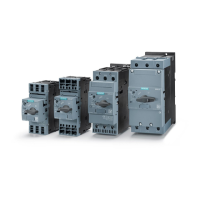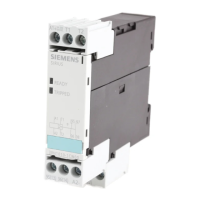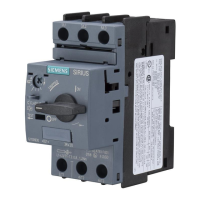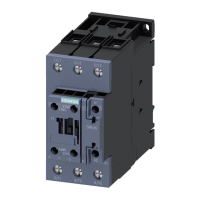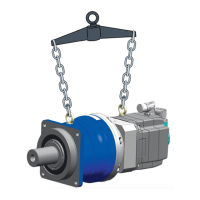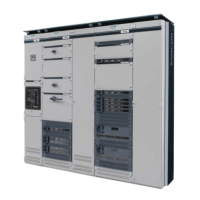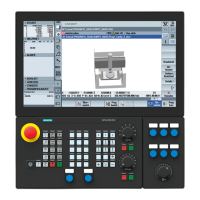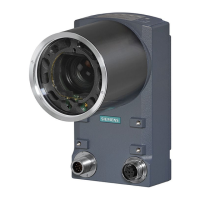SIRIUS 3RU2/3RB3 overload relays
5.4 Functions
SIRIUS Innovations
System Manual, 01/2011, A8E56203870002-03
495
5.4.1.2 Time-delayed overload release
The time-delayed overload release is based on a thermal motor model and will trigger a
release dependent upon the extent of the overload.
3RU21 thermal overload relays and 3RB30/3RB31 solid-state overload relays compensate
temperature up to 60 °C according to IEC 60947-4-1.
5.4.1.3 Tripping classes
The tripping classes describe time intervals within which the overload relays have to trip in
the case of a symmetrical, 3-pole load from the cold state with 7.2 times the current setting.
3RU21 thermal overload relays
3RU21 thermal overload relays are available for normal starting conditions in tripping class
CLASS 10. 3RB30/3RB31 solid-state overload relays can be used for heavy-duty starting
conditions.
The tripping times according to IEC/EN 60947-4-1 are as follows:
Table 5- 4 Tripping times dependent upon tripping classes according to standard IEC/EN 60947-4-1
Tripping class Tripping time t
A
in s at
7.2 x I
e
from cold
CLASS 10 A 2 < t
A
≤ 10
CLASS 10 4 < t
A
≤ 10
CLASS 20 6 < t
A
≤ 20
CLASS 30 9 < t
A
≤ 30
3RB30/3RB31 solid-state overload relays
3RB30 solid-state overload relays are available for normal starting conditions in tripping
class CLASS 10 or for heavy-duty starting conditions in tripping class CLASS 20 (all fixed
settings).
3RB31 solid-state relays are suitable for normal and heavy-duty starting conditions. A rotary
switch is used to set the required tripping class (CLASS 5, 10, 20 or 30) dependent upon the
prevailing starting conditions.
The tripping times according to IEC/EN 60947-4-1, tolerance band E, are as follows:
Table 5- 5 Tripping times dependent upon tripping classes according to standard
IEC/EN 60947-4-1, tolerance band E
Tripping class Tripping time t
A
in s at
7.2 x I
e
from cold
CLASS 5 3 < t
A
≤ 5
CLASS 10 5 < t
A
≤ 10
CLASS 20 10 < t
A
≤ 20
CLASS 30 20 < t
A
≤ 30

